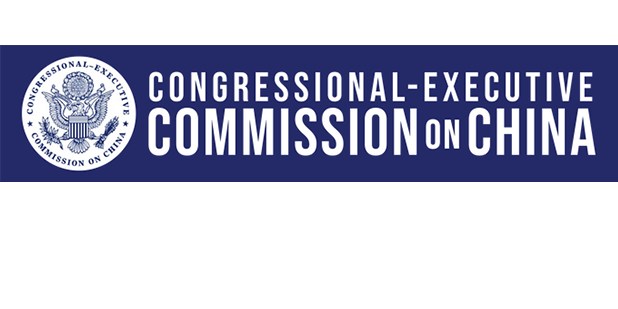Saturday, May 1, 2010, 9 am – 4 pm
USC, Taper Hall (THH), Room 118
--------------------------------------------------------------------------------------------------------------------------------------------------------------------
There is no fee to attend this workshop, but to guarantee your registration, you must provide your credit card information. Your credit card will only be charged if you do not cancel your registration by April 30, 2010. Participants will need to purchase parking on the USC campus for $8. Materials, handouts, breakfast, lunch, and refreshments will be provided to participants at no cost.
Asia specialists and human rights professionals will offer presentations exploring arguments over the universality of human rights, as well as political rights, labor rights, and more.
Sponsored by the USC U.S. – China Institute, the USC East Asian Studies Center and the UCLA Asia Institute, with support from the U.S. Department of Education.
For the program and additional information, please visit the K-12 section of our website: http://china.usc.edu or contact us at (213)740-1307 or asiak12@usc.edu.
Presentations:
Human Rights and “Asian Values” - Lessons from East Timor
Geoff Robinson, History, UCLA
Geoffrey Robinson is a Professor of History at UCLA. He has written extensively on questions of political violence, popular resistance, and human rights in Southeast Asia. His works include: The Dark Side of Paradise: Political Violence in Bali (1995); East Timor 1999: Crimes Against Humanity (2003); and “If You Leave Us Here, We Will Die”: How Genocide Was Stopped in East Timor (2010). Before coming to UCLA, he worked for six years at Amnesty International’s Research Department in London. In 1999, he served as a Political Affairs Officer with the United Nations in Dili, East Timor.
North Korea: Humanitarian and Human Rights Dilemmas
Peter M. Beck, Stanford University
Peter M. Beck teaches at American University in Washington, D.C. and Ewha University in Seoul. He also writes a monthly column for Weekly Chosun and The Korea Herald. Previously, he was the executive director of the U.S. Committee for Human Rights in North Korea and directed the International Crisis Group's Northeast Asia Project in Seoul. He was also the Director of Research and Academic Affairs at the Korea Economic Institute in Washington. He has served as a member of the Ministry of Unification's Policy Advisory Committee and as an adjunct faculty member at Georgetown and Yonsei universities.
He also has been a columnist for the Korean daily Donga Ilbo, an instructor at the University of California at San Diego, a translator for the Korea Foundation, and a staff assistant at Korea's National Assembly and Ministry of Foreign Affairs. He has published over 100 academic and short articles, testified before Congress, and conducted interviews with the world's leading media outlets. He received his B.A. from the University of California at Berkeley, completed the Korean language program at Seoul National University, and conducted his graduate studies at U.C. San Diego's Graduate School of International Relations and Pacific Studies.
Disease, Work and Information: A Survey of Rights in Contemporary China
Clayton Dube. USC U.S.-China Institute
 Clayton Dube is the Associate Director of the USC U.S.-China Institute, which aims to enhance understanding of U.S.-China relations through cutting-edge social science research, innovative graduate and undergraduate training, extensive and influential public events, and professional development efforts. He was previously the UCLA Asia Institute’s Assistant Director, where he headed the Asian studies teacher training program and oversaw a variety of instructional, research, and outreach initiatives. His research has focused on how economic and political change in China since 1900 affected the lives of people in small towns. He has taught Asian and world history at several colleges and has written teaching guides on Chinese history.
Clayton Dube is the Associate Director of the USC U.S.-China Institute, which aims to enhance understanding of U.S.-China relations through cutting-edge social science research, innovative graduate and undergraduate training, extensive and influential public events, and professional development efforts. He was previously the UCLA Asia Institute’s Assistant Director, where he headed the Asian studies teacher training program and oversaw a variety of instructional, research, and outreach initiatives. His research has focused on how economic and political change in China since 1900 affected the lives of people in small towns. He has taught Asian and world history at several colleges and has written teaching guides on Chinese history.
Classroom Lessons on Human Rights
Gary Mukai, Stanford University
Gary Mukai is the director of the Stanford Program on International and Cross-Cultural Education (SPICE). He is a graduate of the University of California, Berkeley, and Stanford University, where he received an M.A. degree in International Development Education from in 1981. Before joining SPICE in 1988, Gary was a teacher in Japan and in California for ten years. His has published numerous books and articles that focus on the Asia/Pacific Region and U.S.-Japan relations. In 1997, he was awarded the Franklin Buchanan Prize for the development of curricular materials on Asia and U.S.- Japan Relations.
WORKSHOP SCHEDULE
8:30 – 9:00 am
Light Breakfast
9:00 – 9:15 am Welcoming Remarks Clayton Dube, USC U.S.-China Institute
9:15 – 10:45am Human Rights and “Asian Values” - Lessons from East Timor Geoffrey Robinson, UCLA Department of History
10:45 – 11:00 am 15-minute refreshment break 11 am – 12:30 pm North Korea: Humanitarian and Human Rights Dilemmas Peter M. Beck, Stanford University
12:30 – 1:30 pm Lunch
1:30 – 3:00 pm A Survey of Rights in Contemporary China Clayton Dube, USC U.S.-China Institute
3:00 – 3:10 pm 10-minute refreshment break 3:10 – 3:55 pm Classroom Lessons on Human Rights Gary Mukai, Stanford University
3:55 – 4:00 pm Concluding Remarks Clayton Dube, USC U.S.-China Institute
----------------------------------------------------------------------------------------------------------------
HOW TO APPLY:
Please download the workshop flyer, complete the registration form portion and send, along with your credit card information. Deadline to register is April 30, 2010.



